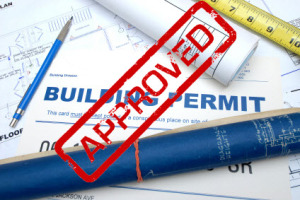What is a Certifier?
Certifier Obligations and functions
Certifiers have statutory obligations and functions under the Building and Development Certifiers Act 2018, the Environmental Planning and Assessment (EP&A) Act 1979 and other legislation.
-
Cerifiers must
- act within the terms and conditions of their registration
- comply with the code of conduct
- avoid conflicts of interest
- adhere to the Practice standard for registered certifiers
- have professional indemnity insurance, unless they are a council employee
- complete continuing professional development each year
-
The main functions of registered certifiers (building surveyors):
- determine applications for complying development, construction certificates and occupation certificates
- inspect building work at specific stages to determine consistency with approved plans, and compliance with legislative requirements and conditions of consent
- take action to address non-compliant work and, if needed, report it to the appropriate authority, such as the local council.
Certifiers do not supervise or manage building work.

Certifiers do not supervise or manage building work.
Various reviews of building regulation in NSW have highlighted the need for a standard to set out the expected conduct of registered certifiers carrying out building certification work.
Various reviews of building regulation in NSW have highlighted the need for a standard to set out the expected conduct of registered certifiers carrying out building certification work.
Download the Practice standard for registered certifiers.The practice standard is issued under section 14 of the Building and Development Certifiers Act as a specified standard which can be prescribed as a condition of registration. Certifiers who certify new residential apartments will be required to adhere to it. Also, all certifiers will be expected to adhere to chapters one and two which cover the role of certifiers as public officials and conflicts of interest.
The role of the Principal Certifying Authority (PCA)
The PCA must be appointed by the ‘person having the benefit of the development consent’ – this means you as the owner and not your builder. It would probably be the same person or firm that issued your CC, but does not have to be – as with your CC, it can be an accredited certifier or your council as PCA.
The PCA must be appointed by the ‘person having the benefit of the development consent’ – this means you as the owner and not your builder. It would probably be the same person or firm that issued your CC, but does not have to be – as with your CC, it can be an accredited certifier or your council as PCA.

How PCA get appointed?
You have the choice as to who issues your Construction Certificate. The certifying authority can either be your council or a registered certifier. The NSW Building Professionals Board (BPB) accredits all certifiers that are not employed by your council. More information is available on the NSW Building Professionals Board (BPB) website.
-
The role of the Principal Certifier (PC)
- The Principal Certifier must be appointed by the ‘person having the benefit of the development consent’ - this means you as the owner and not your builder.
- Your PC can be either your council or a registered certifier. It will probably be the same person or firm that issued your Construction Certificate (CC) but does not have to be.
- The PC’s job is to work with you through the construction process and issue you with an Occupation Certificate (OC) when the work is completed.
- To make this decision, the PC inspects the development at various points in the build and ultimately ensures that the building is safe and fit to occupy and in accordance with the development consent and CC.

How do I get a fast–track approval?
Approvals under the fast-track complying development pathway can be issued in as little as 20 days. Homeowners can save up to $15,000 when building a house under complying development, with savings up to $2,600 for renovations.
How to use complying development
Did you know that you can do some minor building works to your house, shop or business without a development application? This is called exempt development. This means that low impact works not requiring a full merit assessment by council can be done more quickly and with less cost.

Why should I appoint a PCA?
Prior to commencement of work, the owner must appoint an accredited certifier or council to inspect the building work under construction. The certifier or council is known as the Principal Certifying Authority (PCA). The PCA issues the required certificates including the occupation certificate. When you appoint My Building Certifier as your PCA a fee is payable for the inspections and the issue of the final occupation certificate.
As your PCA, My Building Certifier is required to inspect various stages of construction so that the work can be assessed for compliance with the original consent or certificate, and on completion, issue the required Occupation Certificate. The inspections to be undertaken will be listed in your initial certificate. These inspections are called 'Critical Stage Inspections'.
-
Critical Stage inspections may include:
- Excavations
- Foundations and footings
- Steel reinforcement
- Pool fencing
- Floor joists before laying floor
- Framework
- Floor, wall and ceiling inspections for fire ratings and sound transmission (Class 2-9 buildings only)
- Wet area
- Fire services/construction
- Storm water
- Final inspection


